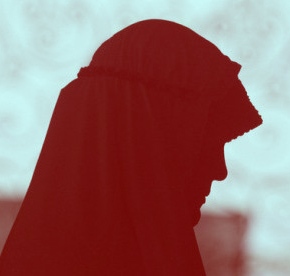Last fall, I travelled all over Al-Andalus in the footsteps of philosophers, poets, warriors and great mystics Sufi’s like Ibn-Arabi. If you are interested in philosophy, science history and intercultural transmission of knowledge, Al- Andalus is your place and I invite you to read further. Al-Andalus represents a singular, tragic and wonderful moment of cultural … Continue reading
Tag Archives: jungian psychology
Following the traces of Esclarmonde de Foix
I just came back again from the haunted and magic Languedoc-Roussillon, where I followed the footsteps of the Esclarmonde de Foix and the heretic Cathars. This essay will focus on Esclarmonde de Foix. Cathars, Catharism and its connection to the holy grail seen through the eyes of Otto Rahn, a shady self proclaimed archaeologist, who … Continue reading
Sufism and female archetypes
Some say Sufism, or Tasawwuf as it is known in the Muslim world, is Islamic mysticism; others say it is the primordial mystical tradition, much older than Islam, using Islam as a structural frame as Gnostics usually did. In this article, we will use Jungian concepts, Sufi poetry, and myths to explore the relationship of female Archetypes and the Sufi path.
Perhaps Sufism is best defined as a universal path to union with God through self reflection – in Jungian terms individuation… Continue reading
The many faces of Jesus from an Jungian view
A recurring thought in books about Jesus is the thought that every time created its own Jesus. Jesus, like the virgin birth, the crucifix and resurrection, is a major symbol in the Jungian sense of the word, an abstract archetype one can fill with our own multiple meanings recognized in very culture, even non-christian. Now if we look for the many faces of Jesus, we may get access to him as a person,scholarly (theologically), from contemporary views, from other main religions, from sworn enemies of any religion and from the father of symbols – C.G. Jung.
The historical Jesus almost gets buried under his construction, even the catholic church rarely refers to him as real historic person in recent writings. Sometimes it seems that Jesus in the Gospel was also such a creation realizing the striking similarity of New Testament symbols with the Egyptian pantheon and myths. Those faces is what this article is all about. The best I have read in that regard about Jesus is from C.G. Jung, so lets start with him. Warning, this is just an essay but a rather lengthy one. Continue reading
Rethinking the Banality of the Good
The most evil man in the world right now, seems to be a retired lieutenant colonel of the Russian KGB, who is determined to reestablish the Soviet empire, to invade world and was likened to Hitler by a leading politician of a superpower. To others, President Vladimir Putin is a judo-chopping, IMF-taming, U.S.-defying global hero. But according to the controversial biography of Stanislav Belkovsky, a star columnist at a Moscow tabloid, former speechwriter and insider, Putin represents the “Banality of the Good” (quote). The striking similarity with Hannah Arendt’s remark, one of the 20th century’s great political thinkers did catch my eye and let me finish his book, which has its weaknesses. Now if “being good” is all, after a string of rumours and dirty laundry, which may or may not be true, what Stanislav Belkovsky, sworn enemy of Putin, came up against him, there must be something unworthy with all of us, not belonging to the élite. I long fancied to write a psychological study of Putin, motivated by the C.G. Jung interview of H.R. Knickerbocker 1938 in the Cosmopolitan , reprinted in C.G. Jung Speaks (page 115-135). To qualify the banality of the good (or the evil) I will follow C.G. Jung’s method, the money flow and the little I really know about the person Putin – that is some minor direct account, my own remote observation, his own account and what his enemies say. Continue reading





You must be logged in to post a comment.